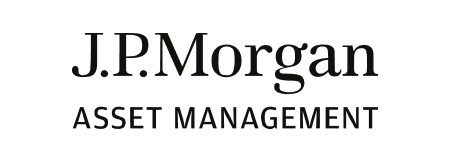UnitPlus
ZinsPlus
AktienPlus
Berg Serie
So geht Geldanlage heute
Professionelle Anlagelösungen vom Tagesgeld 2.0 mit 2,30% Zinsen bis zum langfristigen Vermögensaufbau mit Multi-Asset und dem ersten aktiven ETF-Portfolio in Deutschland. Kluge Geldanlage ohne Aufwand, aber mit Mehrertrag.

Hervorragend
4,5 von 5
4,6 von 5
App Store

UnitPlus
ZinsPlus
AktienPlus
Berg Serie
So geht Geldanlage heute
Professionelle Anlagelösungen vom Tagesgeld 2.0 mit 2,30% Zinsen bis zum langfristigen Vermögensaufbau mit Multi-Asset und dem ersten aktiven ETF-Portfolio in Deutschland. Kluge Geldanlage ohne Aufwand, aber mit Mehrertrag.

Hervorragend
4,5 von 5
4,6 von 5
App Store

So geht Geldanlage heute
Professionelle Anlagelösungen vom Tagesgeld 2.0 mit 2,30% Zinsen bis zum langfristigen Vermögensaufbau mit Multi-Asset und dem ersten aktiven ETF-Portfolio in Deutschland. Kluge Geldanlage ohne Aufwand, aber mit Mehrertrag.

Hervorragend
4,5 von 5
4,6 von 5
App Store

UnitPlus
ZinsPlus
AktienPlus
Berg Serie
So geht Geldanlage heute
Professionelle Anlagelösungen vom Tagesgeld 2.0 mit 2,30% Zinsen bis zum langfristigen Vermögensaufbau mit Multi-Asset und dem ersten aktiven ETF-Portfolio in Deutschland. Kluge Geldanlage ohne Aufwand, aber mit Mehrertrag.

Hervorragend
4,5 von 5
4,6 von 5
App Store

Mach mehr Plus mit deinem Cash. Mit ZinsPlus.
x
Höhere Verzinsung
als das durchschnittliche Girokonto
x
Höhere Verzinsung
als das durchschnittliche Tagesgeldkonto
Mio.
Bankkarten übertrifft
ZinsPlus bei der Verzinsung
Mach mehr Plus mit deinem Cash. Mit ZinsPlus.
x
Höhere Verzinsung
als das durchschnittliche Girokonto
x
Höhere Verzinsung
als das durchschnittliche Tagesgeldkonto
Mio.
Bankkarten übertrifft
ZinsPlus bei der Verzinsung
Mach mehr Plus mit deinem Cash. Mit ZinsPlus.
x
Höhere Verzinsung
als das durchschnittliche Girokonto
x
Höhere Verzinsung
als das durchschnittliche Tagesgeldkonto
Mio.
Bankkarten übertrifft
ZinsPlus bei der Verzinsung
Mach mehr Plus mit deinem Cash. Mit ZinsPlus.
x
Höhere Verzinsung
als das durchschnittliche Girokonto
x
Höhere Verzinsung
als das durchschnittliche Tagesgeldkonto
Mio.
Bankkarten übertrifft
ZinsPlus bei der Verzinsung

Tägliche Verzinsung
In der App siehst du täglich, wie dein Geld arbeitet und Zinsen erzeugt.

An den Leitzins gekoppelt
Wenn die EZB den Leitzins erhöht, steigt auch deine CashPlus Verzinsung. So bist du immer optimal verzinst.

Weltweit bezahlen
Mit der ZinsPlus Mastercard kannst du jederzeit mit deinem verzinsten Geld gebührenfrei bezahlen.

Hohe Sicherheit
Dein Geld bei UnitPlus ist als Sondervermögen sicherer als jedes Bankkonto.

Tägliche Verzinsung
In der App siehst du täglich, wie dein Geld arbeitet und Zinsen erzeugt.

An den Leitzins gekoppelt
Wenn die EZB den Leitzins erhöht, steigt auch deine CashPlus Verzinsung. So bist du immer optimal verzinst.

Weltweit bezahlen
Mit der ZinsPlus Mastercard kannst du jederzeit mit deinem verzinsten Geld gebührenfrei bezahlen.

Hohe Sicherheit
Dein Geld bei UnitPlus ist als Sondervermögen sicherer als jedes Bankkonto.

Tägliche Verzinsung
In der App siehst du täglich, wie dein Geld arbeitet und Zinsen erzeugt.

An den Leitzins gekoppelt
Wenn die EZB den Leitzins erhöht, steigt auch deine CashPlus Verzinsung. So bist du immer optimal verzinst.

Weltweit bezahlen
Mit der ZinsPlus Mastercard kannst du jederzeit mit deinem verzinsten Geld gebührenfrei bezahlen.

Hohe Sicherheit
Dein Geld bei UnitPlus ist als Sondervermögen sicherer als jedes Bankkonto.

Tägliche Verzinsung
In der App siehst du täglich, wie dein Geld arbeitet und Zinsen erzeugt.

An den Leitzins gekoppelt
Wenn die EZB den Leitzins erhöht, steigt auch deine CashPlus Verzinsung. So bist du immer optimal verzinst.

Weltweit bezahlen
Mit der ZinsPlus Mastercard kannst du jederzeit mit deinem verzinsten Geld gebührenfrei bezahlen.

Hohe Sicherheit
Dein Geld bei UnitPlus ist als Sondervermögen sicherer als jedes Bankkonto.
Mit ZinsPlus revolutionieren wir das Tagesgeld
Kostenlos bezahlen
Endlich eine Bankkarte, die Zinsen bringt: Mit unserer Mastercard kannst du weltweit kostenlos bezahlen.
Keine fixen Gebühren
Du zahlst keine fixen Gebühren, sondern nur 0,5% auf das angelegte Geld pro Jahr.
Volle Flexibilität
Bei ZinsPlus gibt es keine Laufzeitbeschränkung und keine Minimal- oder Maximaleinlage.
Sicherheit
Als Sondervermögen ist dein Geld sicherer als auf jedem Bankkonto, auch über 100.000 Euro.
Mit ZinsPlus revolutionieren wir das Tagesgeld
Kostenlos bezahlen
Endlich eine Bankkarte, die Zinsen bringt: Mit unserer Mastercard kannst du weltweit kostenlos bezahlen.
Keine fixen Gebühren
Du zahlst keine fixen Gebühren, sondern nur 0,5% auf das angelegte Geld pro Jahr.
Volle Flexibilität
Bei ZinsPlus gibt es keine Laufzeitbeschränkung und keine Minimal- oder Maximaleinlage.
Sicherheit
Als Sondervermögen ist dein Geld sicherer als auf jedem Bankkonto, auch über 100.000 Euro.
Mit ZinsPlus revolutionieren wir das Tagesgeld
Kostenlos bezahlen
Endlich eine Bankkarte, die Zinsen bringt: Mit unserer Mastercard kannst du weltweit kostenlos bezahlen.
Keine fixen Gebühren
Du zahlst keine fixen Gebühren, sondern nur 0,5% auf das angelegte Geld pro Jahr.
Volle Flexibilität
Bei ZinsPlus gibt es keine Laufzeitbeschränkung und keine Minimal- oder Maximaleinlage.
Sicherheit
Als Sondervermögen ist dein Geld sicherer als auf jedem Bankkonto, auch über 100.000 Euro.
Mit ZinsPlus revolutionieren wir das Tagesgeld
Kostenlos bezahlen
Endlich eine Bankkarte, die Zinsen bringt: Mit unserer Mastercard kannst du weltweit kostenlos bezahlen.
Keine fixen Gebühren
Du zahlst keine fixen Gebühren, sondern nur 0,5% auf das angelegte Geld pro Jahr.
Volle Flexibilität
Bei ZinsPlus gibt es keine Laufzeitbeschränkung und keine Minimal- oder Maximaleinlage.
Sicherheit
Als Sondervermögen ist dein Geld sicherer als auf jedem Bankkonto, auch über 100.000 Euro.
In unter 10 Minuten gehts los
01.
App herunterladen
02.
Depot eröffnen
03.
Einfach investieren



Jetzt App herunterladen!
Erhalte den Downloadlink per Email oder scanne den QR Code.
In unter 10 Minuten gehts los
01.
App herunterladen
02.
Depot eröffnen
03.
Einfach investieren



Jetzt App herunterladen!
Erhalte den Downloadlink per Email oder scanne den QR Code.
So kannst du dein Geld mit UnitPlus investieren
Mit UnitPlus profitierst du mit ZinsPlus nicht nur von optimalen Zinsen, sondern kannst gleichzeitig in unsere preisgekrönten, breit diversifizierten Multi-Asset-Portfolios sowie das erste aktive ETF-Portfolio Deutschlands investieren. So maximierst du dein Ertragspotenzial langfristig auf professionell einfache Weise und baust gezielt Vermögen auf.
ZinsPlus

Profitiere täglich von einer Zinsrendite, die über dem EZB-Leitzins liegt. Die attraktivste Alternative zum Tagesgeld mit UnitPlus Bankkarte.

FestPlus

Du erhältst eine attraktive Rendite bis zum Laufzeitende im September 2027. Der Vorteil gegenüber dem klassischen Festgeld: Du kannst jederzeit flexibel auf dein Geld zugreifen.

MultiPlus

MultiPlus ist das zweite aktive ETF Portfolio bei UnitPlus. Es bringt die Expertise von Goldman Sachs Asset Management in ein Portfolio, welches zu 70% in Aktien und zu 30% in Anleihen anlegt.

AktienPlus

Investiere in ein reines Aktienportfolio mit Unterstützung von J.P. Morgan Asset Management. Dank aktiver ETFs mit einer historischen Rendite über dem Marktdurchschnitt.
Die Berg-Serie

Investiere klug, denke langfristig. Berg-Portfolios bieten eine intelligente Auswahl für langfristiges Wachstum und weltweite Diversifikation. Ausgezeichnet als Bester Anlage-Newcomer vom Institut für Vermögensaufbau 2023.
ZinsPlus

Profitiere täglich von einer Zinsrendite, die über dem EZB-Leitzins liegt. Die attraktivste Alternative zum Tagesgeld mit UnitPlus Bankkarte.

FestPlus

Du erhältst eine attraktive Rendite bis zum Laufzeitende im September 2027. Der Vorteil gegenüber dem klassischen Festgeld: Du kannst jederzeit flexibel auf dein Geld zugreifen.

MultiPlus

MultiPlus ist das zweite aktive ETF Portfolio bei UnitPlus. Es bringt die Expertise von Goldman Sachs Asset Management in ein Portfolio, welches zu 70% in Aktien und zu 30% in Anleihen anlegt.

AktienPlus

Investiere in ein reines Aktienportfolio mit Unterstützung von J.P. Morgan Asset Management. Dank aktiver ETFs mit einer historischen Rendite über dem Marktdurchschnitt.
Die Berg-Serie

Investiere klug, denke langfristig. Berg-Portfolios bieten eine intelligente Auswahl für langfristiges Wachstum und weltweite Diversifikation. Ausgezeichnet als Bester Anlage-Newcomer vom Institut für Vermögensaufbau 2023.
ZinsPlus

Profitiere täglich von einer Zinsrendite, die über dem EZB-Leitzins liegt. Die attraktivste Alternative zum Tagesgeld mit UnitPlus Bankkarte.

FestPlus

Du erhältst eine attraktive Rendite bis zum Laufzeitende im September 2027. Der Vorteil gegenüber dem klassischen Festgeld: Du kannst jederzeit flexibel auf dein Geld zugreifen.

MultiPlus

MultiPlus ist das zweite aktive ETF Portfolio bei UnitPlus. Es bringt die Expertise von Goldman Sachs Asset Management in ein Portfolio, welches zu 70% in Aktien und zu 30% in Anleihen anlegt.

AktienPlus

Investiere in ein reines Aktienportfolio mit Unterstützung von J.P. Morgan Asset Management. Dank aktiver ETFs mit einer historischen Rendite über dem Marktdurchschnitt.
Die Berg-Serie

Investiere klug, denke langfristig. Berg-Portfolios bieten eine intelligente Auswahl für langfristiges Wachstum und weltweite Diversifikation. Ausgezeichnet als Bester Anlage-Newcomer vom Institut für Vermögensaufbau 2023.
ZinsPlus

Profitiere täglich von einer Zinsrendite, die über dem EZB-Leitzins liegt. Die attraktivste Alternative zum Tagesgeld mit UnitPlus Bankkarte.

FestPlus

Du erhältst eine attraktive Rendite bis zum Laufzeitende im September 2027. Der Vorteil gegenüber dem klassischen Festgeld: Du kannst jederzeit flexibel auf dein Geld zugreifen.

MultiPlus

MultiPlus ist das zweite aktive ETF Portfolio bei UnitPlus. Es bringt die Expertise von Goldman Sachs Asset Management in ein Portfolio, welches zu 70% in Aktien und zu 30% in Anleihen anlegt.

AktienPlus

Investiere in ein reines Aktienportfolio mit Unterstützung von J.P. Morgan Asset Management. Dank aktiver ETFs mit einer historischen Rendite über dem Marktdurchschnitt.
Die Berg-Serie

Investiere klug, denke langfristig. Berg-Portfolios bieten eine intelligente Auswahl für langfristiges Wachstum und weltweite Diversifikation. Ausgezeichnet als Bester Anlage-Newcomer vom Institut für Vermögensaufbau 2023.
ZinsPlus

Profitiere täglich von einer Zinsrendite, die über dem EZB-Leitzins liegt. Die attraktivste Alternative zum Tagesgeld mit UnitPlus Bankkarte.

FestPlus

Du erhältst eine attraktive Rendite bis zum Laufzeitende im September 2027. Der Vorteil gegenüber dem klassischen Festgeld: Du kannst jederzeit flexibel auf dein Geld zugreifen.

MultiPlus

MultiPlus ist das zweite aktive ETF Portfolio bei UnitPlus. Es bringt die Expertise von Goldman Sachs Asset Management in ein Portfolio, welches zu 70% in Aktien und zu 30% in Anleihen anlegt.

AktienPlus

Investiere in ein reines Aktienportfolio mit Unterstützung von J.P. Morgan Asset Management. Dank aktiver ETFs mit einer historischen Rendite über dem Marktdurchschnitt.
Die Berg-Serie

Investiere klug, denke langfristig. Berg-Portfolios bieten eine intelligente Auswahl für langfristiges Wachstum und weltweite Diversifikation. Ausgezeichnet als Bester Anlage-Newcomer vom Institut für Vermögensaufbau 2023.
ZinsPlus

Profitiere täglich von einer Zinsrendite, die über dem EZB-Leitzins liegt. Die attraktivste Alternative zum Tagesgeld mit UnitPlus Bankkarte.

FestPlus

Du erhältst eine attraktive Rendite bis zum Laufzeitende im September 2027. Der Vorteil gegenüber dem klassischen Festgeld: Du kannst jederzeit flexibel auf dein Geld zugreifen.

MultiPlus

MultiPlus ist das zweite aktive ETF Portfolio bei UnitPlus. Es bringt die Expertise von Goldman Sachs Asset Management in ein Portfolio, welches zu 70% in Aktien und zu 30% in Anleihen anlegt.

AktienPlus

Investiere in ein reines Aktienportfolio mit Unterstützung von J.P. Morgan Asset Management. Dank aktiver ETFs mit einer historischen Rendite über dem Marktdurchschnitt.
Die Berg-Serie

Investiere klug, denke langfristig. Berg-Portfolios bieten eine intelligente Auswahl für langfristiges Wachstum und weltweite Diversifikation. Ausgezeichnet als Bester Anlage-Newcomer vom Institut für Vermögensaufbau 2023.
ZinsPlus

Profitiere täglich von einer Zinsrendite, die über dem EZB-Leitzins liegt. Die attraktivste Alternative zum Tagesgeld mit UnitPlus Bankkarte.

FestPlus

Du erhältst eine attraktive Rendite bis zum Laufzeitende im September 2027. Der Vorteil gegenüber dem klassischen Festgeld: Du kannst jederzeit flexibel auf dein Geld zugreifen.

MultiPlus

MultiPlus ist das zweite aktive ETF Portfolio bei UnitPlus. Es bringt die Expertise von Goldman Sachs Asset Management in ein Portfolio, welches zu 70% in Aktien und zu 30% in Anleihen anlegt.

AktienPlus

Investiere in ein reines Aktienportfolio mit Unterstützung von J.P. Morgan Asset Management. Dank aktiver ETFs mit einer historischen Rendite über dem Marktdurchschnitt.
Die Berg-Serie

Investiere klug, denke langfristig. Berg-Portfolios bieten eine intelligente Auswahl für langfristiges Wachstum und weltweite Diversifikation. Ausgezeichnet als Bester Anlage-Newcomer vom Institut für Vermögensaufbau 2023.
ZinsPlus

Profitiere täglich von einer Zinsrendite, die über dem EZB-Leitzins liegt. Die attraktivste Alternative zum Tagesgeld mit UnitPlus Bankkarte.

FestPlus

Du erhältst eine attraktive Rendite bis zum Laufzeitende im September 2027. Der Vorteil gegenüber dem klassischen Festgeld: Du kannst jederzeit flexibel auf dein Geld zugreifen.

MultiPlus

MultiPlus ist das zweite aktive ETF Portfolio bei UnitPlus. Es bringt die Expertise von Goldman Sachs Asset Management in ein Portfolio, welches zu 70% in Aktien und zu 30% in Anleihen anlegt.

AktienPlus

Investiere in ein reines Aktienportfolio mit Unterstützung von J.P. Morgan Asset Management. Dank aktiver ETFs mit einer historischen Rendite über dem Marktdurchschnitt.
Die Berg-Serie

Investiere klug, denke langfristig. Berg-Portfolios bieten eine intelligente Auswahl für langfristiges Wachstum und weltweite Diversifikation. Ausgezeichnet als Bester Anlage-Newcomer vom Institut für Vermögensaufbau 2023.
Du kannst in nur ein Portfolio oder mehrere gleichzeitig anlegen. Du kannst deine Wahl jederzeit flexibel ändern und alle Beträge auszahlen lassen.
Du kannst in nur ein Portfolio oder mehrere gleichzeitig anlegen. Du kannst deine Wahl jederzeit flexibel ändern und alle Beträge auszahlen lassen.
Du kannst in nur ein Portfolio oder mehrere gleichzeitig anlegen. Du kannst deine Wahl jederzeit flexibel ändern und alle Beträge auszahlen lassen.
Du kannst in nur ein Portfolio oder mehrere gleichzeitig anlegen. Du kannst deine Wahl jederzeit flexibel ändern und alle Beträge auszahlen lassen.
Dein Geld bei UnitPlus ist als Sondervermögen sicherer als auf
jedem Bankkonto

01
Dein Geld gehört dir
Im Gegensatz zu klassischen Bankkonten gilt dein Geld bei UnitPlus als Sondervermögen und ist damit unantastbar.
02
Vertrauensvolle Partner
Wir arbeiten mit der voll lizenzierten Bank Unicredit zusammen, die in Deutschland von der BaFin überwacht wird.
03
Schutz vor Insolvenz
Selbst bei einer Insolvenz von UnitPlus oder Unicredit ist dein Geld sicher, selbst über 100.000€ hinaus.
04
Sicherer Zahlungsverkehr
Mit deiner Mastercard kannst du weltweit kostenlos und sicher bezahlen.
Dein Geld bei UnitPlus ist als Sondervermögen sicherer als auf
jedem Bankkonto

01
Dein Geld gehört dir
Im Gegensatz zu klassischen Bankkonten gilt dein Geld bei UnitPlus als Sondervermögen und ist damit unantastbar.
02
Vertrauensvolle Partner
Wir arbeiten mit der voll lizenzierten Bank Unicredit zusammen, die in Deutschland von der BaFin überwacht wird.
03
Schutz vor Insolvenz
Selbst bei einer Insolvenz von UnitPlus oder Unicredit ist dein Geld sicher, selbst über 100.000€ hinaus.
04
Sicherer Zahlungsverkehr
Mit deiner Mastercard kannst du weltweit kostenlos und sicher bezahlen.
Dein Geld bei UnitPlus ist als Sondervermögen sicherer als auf
jedem Bankkonto

01
Dein Geld gehört dir
Im Gegensatz zu klassischen Bankkonten gilt dein Geld bei UnitPlus als Sondervermögen und ist damit unantastbar.
02
Vertrauensvolle Partner
Wir arbeiten mit der voll lizenzierten Bank Unicredit zusammen, die in Deutschland von der BaFin überwacht wird.
03
Schutz vor Insolvenz
Selbst bei einer Insolvenz von UnitPlus oder Unicredit ist dein Geld sicher, selbst über 100.000€ hinaus.
04
Sicherer Zahlungsverkehr
Mit deiner Mastercard kannst du weltweit kostenlos und sicher bezahlen.
Dein Geld bei UnitPlus ist als Sondervermögen sicherer als auf
jedem Bankkonto

01
Dein Geld gehört dir
Im Gegensatz zu klassischen Bankkonten gilt dein Geld bei UnitPlus als Sondervermögen und ist damit unantastbar.
02
Vertrauensvolle Partner
Wir arbeiten mit der voll lizenzierten Bank Unicredit zusammen, die in Deutschland von der BaFin überwacht wird.
03
Schutz vor Insolvenz
Selbst bei einer Insolvenz von UnitPlus oder Unicredit ist dein Geld sicher, selbst über 100.000€ hinaus.
04
Sicherer Zahlungsverkehr
Mit deiner Mastercard kannst du weltweit kostenlos und sicher bezahlen.
ZinsPlus

Profitiere täglich von einer Zinsrendite, die über dem EZB-Leitzins liegt. Die attraktivste Alternative zum Tagesgeld mit UnitPlus Bankkarte.

FestPlus

Du erhältst eine attraktive Rendite bis zum Laufzeitende im September 2027. Der Vorteil gegenüber dem klassischen Festgeld: Du kannst jederzeit flexibel auf dein Geld zugreifen.

MultiPlus

MultiPlus ist das zweite aktive ETF Portfolio bei UnitPlus. Es bringt die Expertise von Goldman Sachs Asset Management in ein Portfolio, welches zu 70% in Aktien und zu 30% in Anleihen anlegt.

AktienPlus

Investiere in ein reines Aktienportfolio mit Unterstützung von J.P. Morgan Asset Management. Dank aktiver ETFs mit einer historischen Rendite über dem Marktdurchschnitt.
Die Berg-Serie

Investiere klug, denke langfristig. Berg-Portfolios bieten eine intelligente Auswahl für langfristiges Wachstum und weltweite Diversifikation. Ausgezeichnet als Bester Anlage-Newcomer vom Institut für Vermögensaufbau 2023.
ZinsPlus

Profitiere täglich von einer Zinsrendite, die über dem EZB-Leitzins liegt. Die attraktivste Alternative zum Tagesgeld mit UnitPlus Bankkarte.

FestPlus

Du erhältst eine attraktive Rendite bis zum Laufzeitende im September 2027. Der Vorteil gegenüber dem klassischen Festgeld: Du kannst jederzeit flexibel auf dein Geld zugreifen.

MultiPlus

MultiPlus ist das zweite aktive ETF Portfolio bei UnitPlus. Es bringt die Expertise von Goldman Sachs Asset Management in ein Portfolio, welches zu 70% in Aktien und zu 30% in Anleihen anlegt.

AktienPlus

Investiere in ein reines Aktienportfolio mit Unterstützung von J.P. Morgan Asset Management. Dank aktiver ETFs mit einer historischen Rendite über dem Marktdurchschnitt.
Die Berg-Serie

Investiere klug, denke langfristig. Berg-Portfolios bieten eine intelligente Auswahl für langfristiges Wachstum und weltweite Diversifikation. Ausgezeichnet als Bester Anlage-Newcomer vom Institut für Vermögensaufbau 2023.
ZinsPlus

Profitiere täglich von einer Zinsrendite, die über dem EZB-Leitzins liegt. Die attraktivste Alternative zum Tagesgeld mit UnitPlus Bankkarte.

FestPlus

Du erhältst eine attraktive Rendite bis zum Laufzeitende im September 2027. Der Vorteil gegenüber dem klassischen Festgeld: Du kannst jederzeit flexibel auf dein Geld zugreifen.

MultiPlus

MultiPlus ist das zweite aktive ETF Portfolio bei UnitPlus. Es bringt die Expertise von Goldman Sachs Asset Management in ein Portfolio, welches zu 70% in Aktien und zu 30% in Anleihen anlegt.

AktienPlus

Investiere in ein reines Aktienportfolio mit Unterstützung von J.P. Morgan Asset Management. Dank aktiver ETFs mit einer historischen Rendite über dem Marktdurchschnitt.
Die Berg-Serie

Investiere klug, denke langfristig. Berg-Portfolios bieten eine intelligente Auswahl für langfristiges Wachstum und weltweite Diversifikation. Ausgezeichnet als Bester Anlage-Newcomer vom Institut für Vermögensaufbau 2023.
ZinsPlus

Profitiere täglich von einer Zinsrendite, die über dem EZB-Leitzins liegt. Die attraktivste Alternative zum Tagesgeld mit UnitPlus Bankkarte.

FestPlus

Du erhältst eine attraktive Rendite bis zum Laufzeitende im September 2027. Der Vorteil gegenüber dem klassischen Festgeld: Du kannst jederzeit flexibel auf dein Geld zugreifen.

MultiPlus

MultiPlus ist das zweite aktive ETF Portfolio bei UnitPlus. Es bringt die Expertise von Goldman Sachs Asset Management in ein Portfolio, welches zu 70% in Aktien und zu 30% in Anleihen anlegt.

AktienPlus

Investiere in ein reines Aktienportfolio mit Unterstützung von J.P. Morgan Asset Management. Dank aktiver ETFs mit einer historischen Rendite über dem Marktdurchschnitt.
Die Berg-Serie

Investiere klug, denke langfristig. Berg-Portfolios bieten eine intelligente Auswahl für langfristiges Wachstum und weltweite Diversifikation. Ausgezeichnet als Bester Anlage-Newcomer vom Institut für Vermögensaufbau 2023.
ZinsPlus

Profitiere täglich von einer Zinsrendite, die über dem EZB-Leitzins liegt. Die attraktivste Alternative zum Tagesgeld mit UnitPlus Bankkarte.

FestPlus

Du erhältst eine attraktive Rendite bis zum Laufzeitende im September 2027. Der Vorteil gegenüber dem klassischen Festgeld: Du kannst jederzeit flexibel auf dein Geld zugreifen.

MultiPlus

MultiPlus ist das zweite aktive ETF Portfolio bei UnitPlus. Es bringt die Expertise von Goldman Sachs Asset Management in ein Portfolio, welches zu 70% in Aktien und zu 30% in Anleihen anlegt.

AktienPlus

Investiere in ein reines Aktienportfolio mit Unterstützung von J.P. Morgan Asset Management. Dank aktiver ETFs mit einer historischen Rendite über dem Marktdurchschnitt.
Die Berg-Serie

Investiere klug, denke langfristig. Berg-Portfolios bieten eine intelligente Auswahl für langfristiges Wachstum und weltweite Diversifikation. Ausgezeichnet als Bester Anlage-Newcomer vom Institut für Vermögensaufbau 2023.
ZinsPlus

Profitiere täglich von einer Zinsrendite, die über dem EZB-Leitzins liegt. Die attraktivste Alternative zum Tagesgeld mit UnitPlus Bankkarte.

FestPlus

Du erhältst eine attraktive Rendite bis zum Laufzeitende im September 2027. Der Vorteil gegenüber dem klassischen Festgeld: Du kannst jederzeit flexibel auf dein Geld zugreifen.

MultiPlus

MultiPlus ist das zweite aktive ETF Portfolio bei UnitPlus. Es bringt die Expertise von Goldman Sachs Asset Management in ein Portfolio, welches zu 70% in Aktien und zu 30% in Anleihen anlegt.

AktienPlus

Investiere in ein reines Aktienportfolio mit Unterstützung von J.P. Morgan Asset Management. Dank aktiver ETFs mit einer historischen Rendite über dem Marktdurchschnitt.
Die Berg-Serie

Investiere klug, denke langfristig. Berg-Portfolios bieten eine intelligente Auswahl für langfristiges Wachstum und weltweite Diversifikation. Ausgezeichnet als Bester Anlage-Newcomer vom Institut für Vermögensaufbau 2023.
ZinsPlus

Profitiere täglich von einer Zinsrendite, die über dem EZB-Leitzins liegt. Die attraktivste Alternative zum Tagesgeld mit UnitPlus Bankkarte.

FestPlus

Du erhältst eine attraktive Rendite bis zum Laufzeitende im September 2027. Der Vorteil gegenüber dem klassischen Festgeld: Du kannst jederzeit flexibel auf dein Geld zugreifen.

MultiPlus

MultiPlus ist das zweite aktive ETF Portfolio bei UnitPlus. Es bringt die Expertise von Goldman Sachs Asset Management in ein Portfolio, welches zu 70% in Aktien und zu 30% in Anleihen anlegt.

AktienPlus

Investiere in ein reines Aktienportfolio mit Unterstützung von J.P. Morgan Asset Management. Dank aktiver ETFs mit einer historischen Rendite über dem Marktdurchschnitt.
Die Berg-Serie

Investiere klug, denke langfristig. Berg-Portfolios bieten eine intelligente Auswahl für langfristiges Wachstum und weltweite Diversifikation. Ausgezeichnet als Bester Anlage-Newcomer vom Institut für Vermögensaufbau 2023.
ZinsPlus

Profitiere täglich von einer Zinsrendite, die über dem EZB-Leitzins liegt. Die attraktivste Alternative zum Tagesgeld mit UnitPlus Bankkarte.

FestPlus

Du erhältst eine attraktive Rendite bis zum Laufzeitende im September 2027. Der Vorteil gegenüber dem klassischen Festgeld: Du kannst jederzeit flexibel auf dein Geld zugreifen.

MultiPlus

MultiPlus ist das zweite aktive ETF Portfolio bei UnitPlus. Es bringt die Expertise von Goldman Sachs Asset Management in ein Portfolio, welches zu 70% in Aktien und zu 30% in Anleihen anlegt.

AktienPlus

Investiere in ein reines Aktienportfolio mit Unterstützung von J.P. Morgan Asset Management. Dank aktiver ETFs mit einer historischen Rendite über dem Marktdurchschnitt.
Die Berg-Serie

Investiere klug, denke langfristig. Berg-Portfolios bieten eine intelligente Auswahl für langfristiges Wachstum und weltweite Diversifikation. Ausgezeichnet als Bester Anlage-Newcomer vom Institut für Vermögensaufbau 2023.
Finance Product of the year 2025
disq.de
German Excellence award 2024
deutscherexzellenzpreis.de

Qualitätssiegel 2025
bitmi.de

Tagesgeldvergleich
4,5 von 5,0Tagesgeldvergleich.net
TrustScore
4.5
556
Bewertungen
Investieren ist mit Risiken verbunden, einschließlich eines möglichen Verlusts des investierten Geldes. Die Wertentwicklung in der Vergangenheit ist keine Garantie für die künftige Wertentwicklung. Wir bieten keine Steuerberatung an. Die Anleger*innen werden aufgefordert, ihren persönlichen Steuerberater zu konsultieren. Alle gezeigten Grafiken dienen nur der Veranschaulichung und ähneln möglicherweise nicht dem tatsächlichen Produkt. Wir stützen uns auf Informationen aus verschiedenen Quellen, die wir für zuverlässig halten, können jedoch nicht für die Richtigkeit und Vollständigkeit dieser Informationen garantieren. Außerdem sind sie nicht als Angebot, Empfehlung oder Aufforderung zum Kauf oder Verkauf von bestimmten Wertpapieren zu verstehen.
© UnitPlus InnoInvest GmbH 2025
Entwickelt und gehostet in Deutschland
Finance Product of the year 2025
disq.de
German Excellence award 2024
deutscherexzellenzpreis.de

Qualitätssiegel 2025
bitmi.de

Tagesgeldvergleich
4,5 von 5,0Tagesgeldvergleich.net
TrustScore
4.5
556
Bewertungen
Investieren ist mit Risiken verbunden, einschließlich eines möglichen Verlusts des investierten Geldes. Die Wertentwicklung in der Vergangenheit ist keine Garantie für die künftige Wertentwicklung. Wir bieten keine Steuerberatung an. Die Anleger*innen werden aufgefordert, ihren persönlichen Steuerberater zu konsultieren. Alle gezeigten Grafiken dienen nur der Veranschaulichung und ähneln möglicherweise nicht dem tatsächlichen Produkt. Wir stützen uns auf Informationen aus verschiedenen Quellen, die wir für zuverlässig halten, können jedoch nicht für die Richtigkeit und Vollständigkeit dieser Informationen garantieren. Außerdem sind sie nicht als Angebot, Empfehlung oder Aufforderung zum Kauf oder Verkauf von bestimmten Wertpapieren zu verstehen.
© UnitPlus InnoInvest GmbH 2025
Entwickelt und gehostet in Deutschland
Finance Product of the year 2025
disq.de
German Excellence award 2024
deutscherexzellenzpreis.de

Qualitätssiegel 2025
bitmi.de

Tagesgeldvergleich
4,5 von 5,0Tagesgeldvergleich.net
TrustScore
4.5
556
Bewertungen
Investieren ist mit Risiken verbunden, einschließlich eines möglichen Verlusts des investierten Geldes. Die Wertentwicklung in der Vergangenheit ist keine Garantie für die künftige Wertentwicklung. Wir bieten keine Steuerberatung an. Die Anleger*innen werden aufgefordert, ihren persönlichen Steuerberater zu konsultieren. Alle gezeigten Grafiken dienen nur der Veranschaulichung und ähneln möglicherweise nicht dem tatsächlichen Produkt. Wir stützen uns auf Informationen aus verschiedenen Quellen, die wir für zuverlässig halten, können jedoch nicht für die Richtigkeit und Vollständigkeit dieser Informationen garantieren. Außerdem sind sie nicht als Angebot, Empfehlung oder Aufforderung zum Kauf oder Verkauf von bestimmten Wertpapieren zu verstehen.
© UnitPlus InnoInvest GmbH 2025
Entwickelt und gehostet in Deutschland
Finance Product of the year 2025
disq.de
German Excellence award 2024
deutscherexzellenzpreis.de

Qualitätssiegel 2025
bitmi.de

Tagesgeldvergleich
4,5 von 5,0Tagesgeldvergleich.net
TrustScore
4.5
556
Bewertungen
Investieren ist mit Risiken verbunden, einschließlich eines möglichen Verlusts des investierten Geldes. Die Wertentwicklung in der Vergangenheit ist keine Garantie für die künftige Wertentwicklung. Wir bieten keine Steuerberatung an. Die Anleger*innen werden aufgefordert, ihren persönlichen Steuerberater zu konsultieren. Alle gezeigten Grafiken dienen nur der Veranschaulichung und ähneln möglicherweise nicht dem tatsächlichen Produkt. Wir stützen uns auf Informationen aus verschiedenen Quellen, die wir für zuverlässig halten, können jedoch nicht für die Richtigkeit und Vollständigkeit dieser Informationen garantieren. Außerdem sind sie nicht als Angebot, Empfehlung oder Aufforderung zum Kauf oder Verkauf von bestimmten Wertpapieren zu verstehen.
© UnitPlus InnoInvest GmbH 2025
Entwickelt und gehostet in Deutschland









